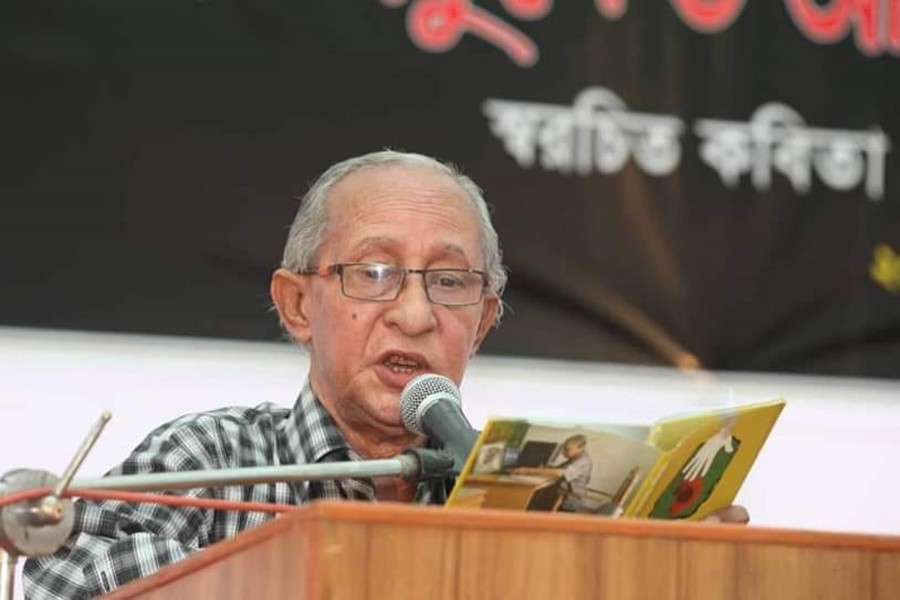
Published :
Updated :

"Birds have flown away, but loose feathers lie scattered", thus wrote Binoy Majumdar, a major figure in Bangla poetry of the 1950s. What he has meant in these lines could probably point to the permanence of artistic treasures. With the dazzle of instant feeling of wonder gone, at artist possesses nothing - except his/her essence of work. This stunning line applies to every genuine artist in the broader sense. They include authors, painters, composers and many others in the category of the arts.
The not-much-prolific Mashuk Chowdhury (1947-2020), who left this world on June 24,created his unique aura with his dedication to poetry. After an abnormally long gap, the poet published a number of poetry anthologies in quick succession. His readers, the majority of whom had emerged in the 1970s, welcomed the poet back to the poetry of Bangladesh. Like all genuine authors, Mashuk appeared to be least interested in startling his admirers.
What the poet had discovered to be his prime task was filling the void created due to his almost two-decade-long absence from writing. Amazingly, the poet was capable of piecing together the fragments he had left scattered back in the late 1990s. And he could prove himself nearly successful in getting back his signature romantic tonality. In the new phase, he added a fresh element to his poetry -the 1971 Liberation War and love for the homeland and his fellow countrymen.
In spite of his vulnerable health condition caused by cardiac complications, the poet's immersion in his work made him look vibrant with life. Unlike many other poets who try to resume writing after a long absence from the scene, Mashuk was able to start recreating his lost poetic world. A born poet as he was, it didn't take long for him to attract the new-generation readers to his typical world created between the late 1960s and the 1980s. But the cold touch of death had been stalking him like it does with everybody. Authors and painters have been dealing with the theme of death since the ancient times of poetry. They know they will also be summoned by the inevitable layers of mist anytime. Being aware of this, many artists remain apparently prepared for the final journey. But they never make themselves obsessed with death.
Mashuk Chowdhury belonged to this genre of the arts. His poems written in the last few years are replete with the celebrations of life, with occasional phases of nostalgic reflections. Love, the poet's dominant theme during his formative age, which overshadows his work throughout the 1970s, has never deserted him completely. A romantic and markedly optimistic view of existence has been alive throughout Mashuk's work even after he re-emerged in a social and national reality different from the 1970s.
Mashuk had an advantage. He had all through been conscious of his milieu. Perhaps this love for the contemporary developments has saved him from being lost in the narcissistic world, where the 'self' rules the roost. In this inward-looking world, all broader issues of existence continue to be made to appear less important than others. Pure authors cannot be tricked into this exercise that goes against life.
Inordinately long gaps detract a lot from an otherwise brilliant poet. But there are exceptions. German poet Rainer Maria Rilke (1875-1926) remained far from writing for ten long years. But this gap couldn't take away the inherent lyrical strength from his poetry. In his new collection after the gap -'Duino Elegies', Rilke shows a complete rebirth. Hopefully, critics will look for the signs of a new voyage in Mashuk's later-day work.


 For all latest news, follow The Financial Express Google News channel.
For all latest news, follow The Financial Express Google News channel.